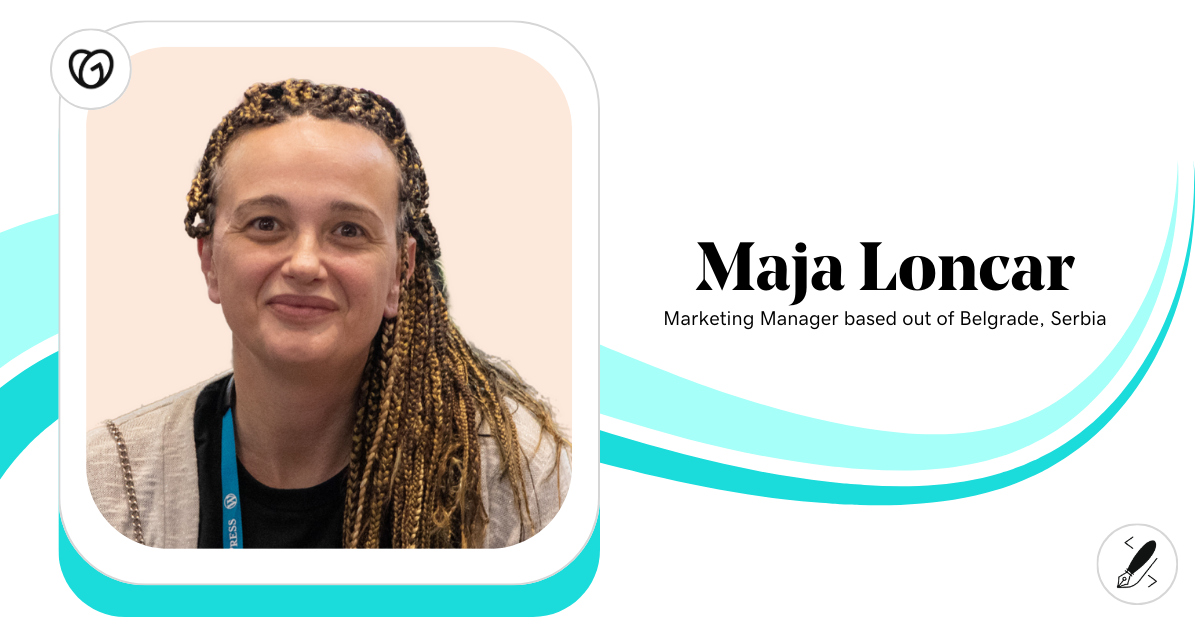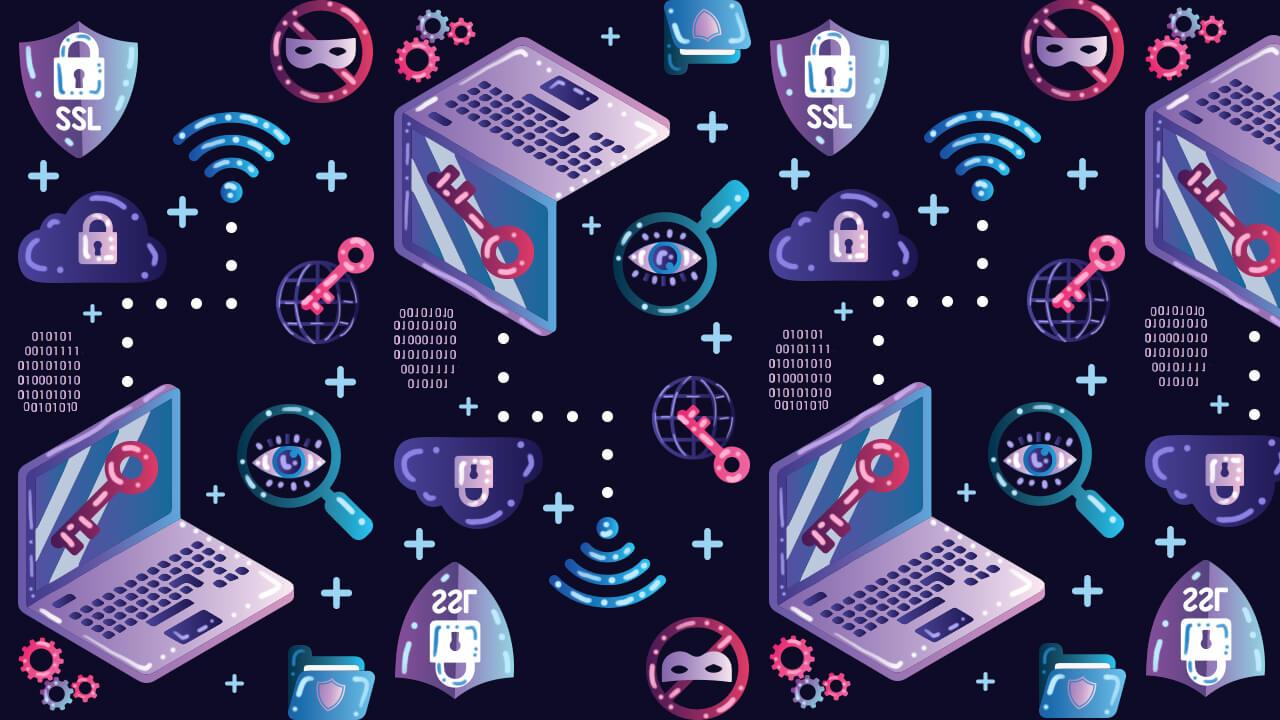I started my coding journey at the beginning of 2015 with no idea where to start. Two years into my first job out of college, I found myself looking for the next step in my career. I was using some HTML and CSS skills that I learned from my MySpace days (seriously!) as part of my web producer job when I was approached to put together a website. The assignment was a quick drag-and-drop site, no coding necessary. But, I thought it was a good excuse to learn to code and hone my web development skills.
Learning something new is hard, especially when you're trying to break into a highly technical and oftentimes male-dominated industry. I started with a Skillcrush blueprint, and my curiosity turned into a hobby, which became an obsession, which became a career.
Along the way, I’ve gathered some resources and bits of advice for women interested in web development. Here’s my roundup of communities and resources that you can use to start your coding journey.
Learn to code in your local community
For anybody looking to learn something new, it’s important to have a support system in place to help you when you hit bumps along the road. Boot camps and college classes have this system built in, but it’s just as important for a self-taught programmer.
Consider activity levels, meeting regularity, cost, commute and level of programming when choosing groups to participate in.
You might find a local Meetup, but you should also check out these organizations:
1. Women Who Code
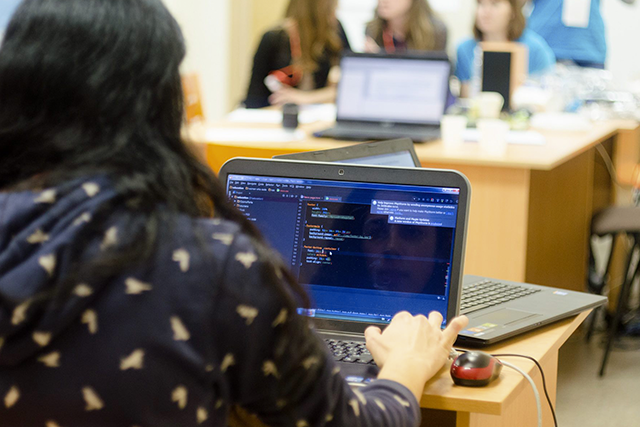
Women Who Code has connected more than 80,000 women all over the world. They have networks on every continent except Antarctica. The events are either free or priced by the event, and you get both community and knowledge — online and in-person.
In my experience, I've gained technical knowledge and an entire community of women who have my back while we navigate the tech world together.
2. Girls Who Code
Girls Who Code is specifically targeted for girls in middle and high school to encourage their interest in programming. Girls Who Code wants to capture the interest early and nurture it through college. Like Women Who Code, events are either free or priced per event, and they run clubs and a Summer Immersion Program in-person.
3. CodeNewbie
CodeNewbie is "the most supportive community of programmers and people learning to code.” It’s made up of Twitter chats, a Slack team, weekly podcasts and meetups in major cities. Events are either free or priced per event.
Learn to code online with fundamental lessons
Whether you’re majoring in computer science, enrolling in a bootcamp, or learning on your own, you should start with a solid foundation. Online courses are a great place to start, and there are tons of resources out there to get you started.
1. Code School
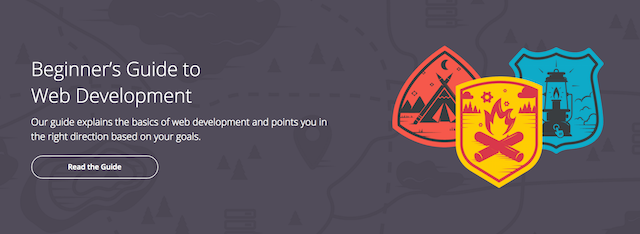
The "Try" courses at Code School are great for beginners. They’re free, self-paced, cover the basics, and only take about an hour. They also have excellent advanced courses if you want to purchase a subscription. Keep an eye out for limited-time offers on free courses.
2. Codecademy
With free courses like "Make a Website," "Deploy a Website" and "Learn the Command Line," Codecademy picks up where Code School's "Try" courses leave off. Codecademy also has a pro tier that includes a learning plan, projects, quizzes and a live advisor.
3. The Coding Train
The Coding Train has great coding challenge and intro subject videos. Check out their YouTube channel and see if their tutorials are right for you.
4. Skillcrush
Skillcrush is an excellent introduction to web development or design. I started with the Skillcrush Web Development Blueprint and highly recommend it for beginners. It's completely self-paced and can be completed in one to three months, but you have a syllabus which gives you structure, and weekly office hours via Hangouts with a teacher’s assistant (TA). The majority of their TA's and students are women.
5. Free Code Camp
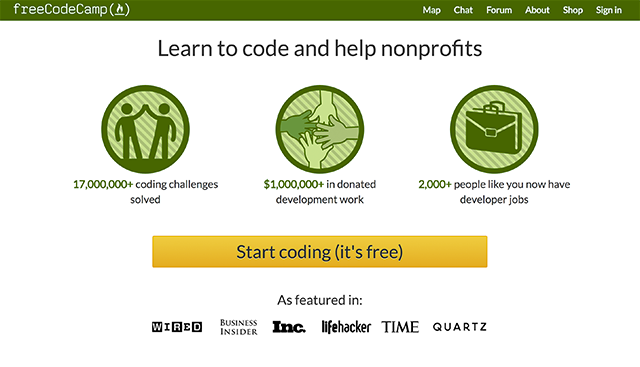
Free Code Camp is an open-source community driven by self-paced coding challenges and projects, culminating in an impressive certification.
6. Lynda
Lynda has self-paced courses, tutorials and walkthroughs for everything from Adobe Photoshop to Ruby on Rails — and for every level. Make sure to check whether your library card or student ID gets you a free account!
Learn to code in the classroom
Tried the self-taught route, but found you prefer an instructor? You’re certainly not alone. Boot camps and colleges are the most expensive ways to learn how to code, but you also have the advantage of a built-in community, experts and instructors.
Pro tip: Be sure to ask about placement rates for graduates, scholarships and stipends.
1. Boot camps
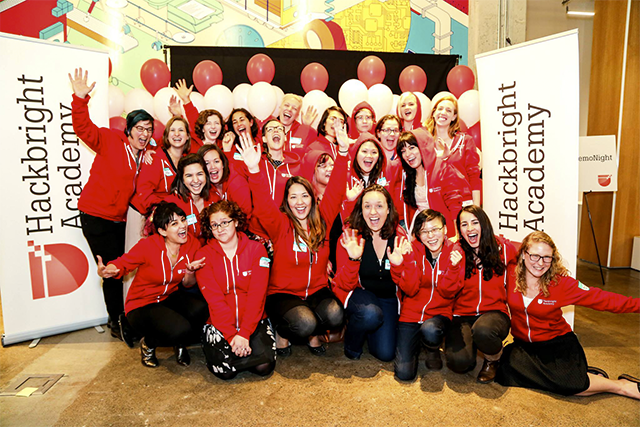
Boot camps are semi-formal education, either in-person or online, and they typically last from three to nine months. They’re a great alternative to the four-year university, and there are dozens of options to choose from.
Evaluate boot camps based on location, price and what course subject and type of community and support they offer.
Reach out to graduates directly. A quick LinkedIn search might turn up program graduates. Here are a few options to consider:
- Hackbright Academy in San Francisco exclusively takes women as students.
- General Assembly, The Iron Yard, Coding Dojo and New York Academy of Code and Design all have multiple campuses in the U.S.
- Flatiron School has a campus in New York City and online.
- Online boot camps like Bloc and Treehouse are excellent if you don't live in a major city.
This is by no means an exhaustive list — do your research and select on option that best suits your specific needs.
2. College and/or university
Going to a four-year university and majoring in Computer Science is the "formal" route to a job in software engineering, and many employers still value this educational path. Just remember, that while the world of academia is changing, you’ll still likely have to take some intro courses that aren’t specifically related to your degree choice.
Additional resources to bookmark
Free Programming Books Github Repo
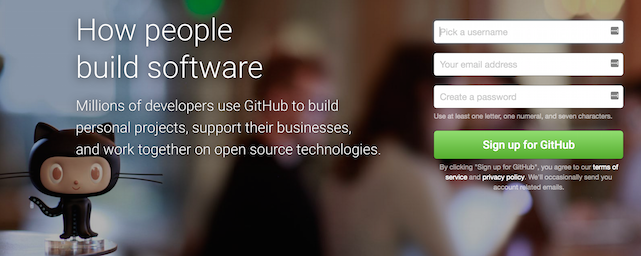
Free books! They haven't gone out of style yet. This repository on Github provides free, online texts in multiple languages (both spoken and coding) and the repository is constantly being updated so check back often.
DevDocs.io
DevDocs.io is my hidden gem of a resource. They fold in documentation from every language and major framework into one easy place - with the added bonus of a search bar. Truly a developer's best friend.
These resources are just the tip of the iceberg
Getting started in coding can seem daunting at first. The wonderful thing about tech is that it’s always changing. That means you’ll always be learning. Having some go-to resources in your back pocket and learning how to learn early is important. Find a combination that works for you, stick with it, and you’ll be coding up a storm in no time.



